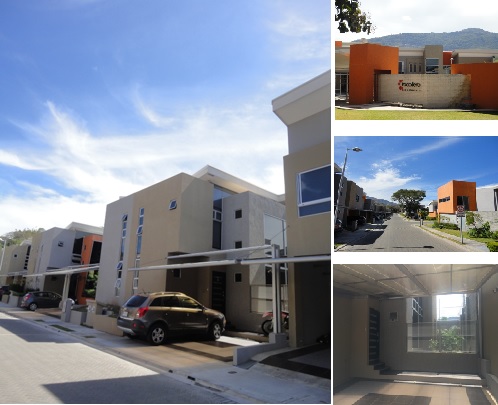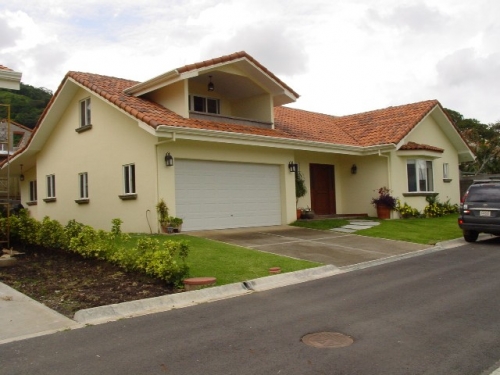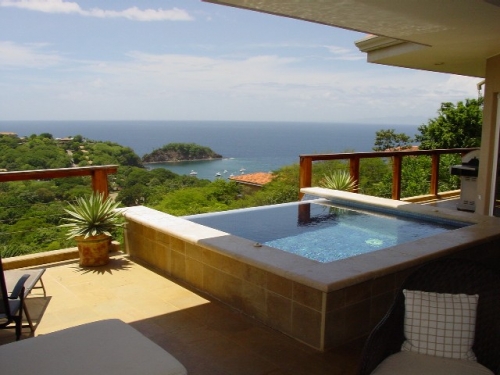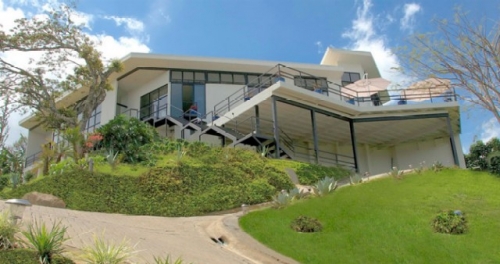Costa Rica Guide
Costa Rica Real Estate
List your property today!
Inclusion of real estate listings at Costa Rica Guide is
absolutely free of charge.
Featured Properties
Costa Rica Guide - Costa Rica Real Estate
Buying Process - Real Estate Information
If you are considering a real estate investment in Costa Rica, the following information will help you understand the real estate buying process.
The information is divided into two main sections:
I. Basic steps to purchase property in Costa Rica
a. Legal vocabulary
b. Step-by-step buying process
II. Ensure a real estate transaction is legally executed in Costa Rica
Basic steps to purchase property in Costa Rica
Once a buyer has seen a property of interest, the next step is to understand the process for acquiring the property. The following are basic steps that a purchaser follows when buying a property in Costa Rica:
1 - Sign a purchase/sale contract with the seller
2 - Deposit funds in an escrow
3 - Title research is performed
4 - Closing – Execution of Transfer Deed, Endorsement of Shares
and/or Mortgage Deed and disburse funds
5 - Register new owner with the Public Registry
6 - Receive official Title Guaranty
1. Basic Terminology – While the purchase process may seem simple, there are some key legal terms a buyer should know. The following is common vocabulary used in real estate transactions in Costa Rica.
a) Folio Real: This is the "social security" number of properties. It is a unique number assigned to each property to identify it and distinguish it from others. This number is comprised of three parts where the first number indicates the province, the second group of numbers is the number of the property itself and the last group indicates how many owners the property has or has had. The property that you are buying MUST have this number in order for you to obtain clear title.
b) Transfer Deed (escritura de traspaso): This is the document that contains all of the stipulations regarding the transfer of real estate. This document must be prepared by an attorney who must also be a Public Notary and the deed must be recorded in his/her notary book as well as at the Public Registry of Properties in San Jose. Stewart Title Costa Rica provides this service. Further, Stewart Title guarantees that the deed will be registered the same day or next day after the close to insure the government recognizes your purchase immediately and no other party can claim it before you.
c) Power of Attorney (Poder): This document authorizes a person to act on behalf of another to perform specific actions such as the purchase of a property. This is especially useful for clients that wish to close on their property without returning to Costa Rica.
d) Survey Plan (Cadastral Plan): In order to transfer or acquire a property a survey must be recorded at the Public Registry with the municipality authorization. The official drawing of the property is validated through an approval process at the Public Registry of Properties as well as at the municipality in which the property is located.
e) Public Notary: Attorney licensed by law. A public notary is necessary in order to purchase a property. He/she will be in charge of drafting the appropriate transfer deed.
f) Representatives: If the buyer or seller will not attend the closing, an individual with power of attorney to represent either or both parties will be required on the day of closing. If the buyer, seller or both are corporations, a legal representative should be present to sign the deed and he/she should have a legal document to justify his presence. This document is granted by a Public Notary.
g) Record of the transfer deed: Upon the signature of the transfer deed, the Public Notary takes the deed to the Public Registry. The record process is made of two phases. On phase one, the notary turns the deed to the Public Registry for the appropriate annotation. The registry verifies the deed is correct and on phase two the property is recorded in the name of the new owner.
Purchasing Methodologies
1. Acquiring real estate in Costa Rica through a direct transfer: This is the typical purchase process in which one or more physical individuals acquire a property in their personal name.
2. Acquiring real estate in Costa Rica through corporations: One of the must common practices in Costa Rica is to acquire properties through a new corporation or through an existing corporation that owns the property. The advantage of this method is that the buyer can protect his or her asset anonymously. Further, if a purchaser acquires a property through an existing corporation that already owns the property, there are no transfer taxes and other stamps to be paid. This is due to the fact that transfer taxes and stamps must be paid anytime there is a change in the ownership of the property. When acquiring the shares of an existing corporation, technically there is no change in the recorded owner of the property. If a property is acquired through a new corporation, the transfer taxes and stamps must be paid because the name of the property owner changes.
Fee Structure
A. Transfer taxes, stamps and other costs: In order to record the transfer of a property, a 1.5% should be paid for transfer taxes and an additional 1% for stamps at the Public Registry.
B. Notary Fees: Notaries are required by law to charge 1.25% for legal fees.
C. Survey fees: When a new survey for the property is required.
D. Mortgage registration fees: The government charges .6% of the mortgage value to register the mortgage deed for the property.
Ensure a real estate transaction is legally executed in Costa Rica
One of the greatest concerns among foreigners purchasing real estate in a foreign country is to ensure a transaction is executed legally and if the legal system will insure a lifetime of enjoyment of the property.
The Costa Rica legal system, if followed correctly, does give ample protection to investors. However, if a transaction is not executed correctly, loss can occur.
To guarantee real estate investments in Costa Rica, there are three tools that should be present in a transaction.
a. Adequate legal representation and an experienced notary.
A notary is an impartial individual in the closing but his/her job as the legal representative of the parties should provide the buyer on the seller with legal advise as to the complete process.
b. Title Guaranty in Costa Rica
A contract by which a third party (Guaranty Company) commits to indemnify losses due to legal situations that could affect the property and that are not excepted or excluded from the respective coverage. It’s a legal document that grants the buyer the security and peace of mind that the buyer has clear title to their investment is protected in the event of defect. The process of issuing a Title Guaranty includes the issuance of a Title Commitment that allows the buyer to examine the legal status of the property and provide them with a tool to evaluate if the property is in proper condition for purchase. The final title guaranty is issued after the close and is based on the title commitment. Title Guaranty is a new concept in Costa Rica, but it has already proven to add value to initial real estate purchases, re-sales and has encouraged transparency and increased liquidity in the real estate process.
c. Escrow in Costa Rica
Most buyers from the US understand Escrow service to include not only the managing of funds for a property purchase, but all of the administrative work required to execute a close. In fact, in states where an attorney is not required for a real estate purchase, the escrow agent becomes the central party responsible for ensuring that all of the documentation is in order before the close. In Costa Rica, escrow is more narrowly defined as a financial service that prevents the manipulation or mishandling of funds prior to closing. The escrow agent is a neutral third party with responsibility for issuing checks and executing payments. This system gives confidence to all interested parties (e.g. attorneys, brokers, seller) that they will receive funds at the closing.
The real estate buying process in Costa Rica need not be intimidating or confusing. By understanding the steps in the process and pitfalls to avoid, a buyer can confidently invest in and enjoy a property.
The above information is in part courtesy of Stewart Title Latin Americas.






